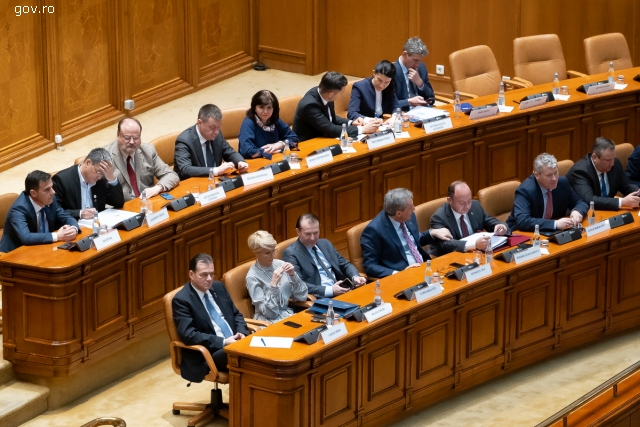Motion Censure Gets A No-vote in Parliament
The Liberal government in Bucharest survived with no great trepidation the Social Democratic attempt to dismiss it by censure motion

Bogdan Matei, 31.08.2020, 18:27
In a greatly anticipated outcome, the censure motion introduced by the Social Democrats against the National Liberal government turned out to be a soap bubble, which burst during the Monday afternoon session in Parliament, which did not manage to form a quorum. The initiators of the motion accuse the executive of losing their credibility by the way in which they managed the pandemic, as a recent report from the Court of Accounts allegedly shows. In reply, the Liberals and their political backer, President Klaus Iohannis, labeled irresponsible the attempt to leave the country without a government with full prerogatives at the height of a health crisis. In order for the motion to pass and the Orban government to be ousted, 233 votes were needed, meaning half plus one. After hours of waiting and repeated attempts to put MPs into seats, the motion’s authors resigned to the situation, as only 226 MPs showed up in total. The Liberals and their major partners, USR and PMP, had said ahead of time that they would be boycotting the session. The Hungarian Union (UDMR), said they would attend the debates, but not the vote. The Social Democrats and their partners, traditional or temporary allies, Pro Romania and ALDE, had to concede that they cannot count even on the loyalty of their own MPs. A few Social Democrats invoked health problems, and did not attend the session. As a result, newly minted general leader of the party, former interim, Marcel Ciolacu, who right now is speaker of the lower house, threatened out loud in Parliament that he would exclude from the party the absentees. His people remain the largest group in the legislative assembly, but its ranks have been thinning for a while now. The legislative elections that are scheduled in three months are expected to halve the number of MPs that the Social Democrats have in Parliament, according to polls at this particular point. As commentators speculate, many of those who know that they lost eligibility no longer toe the party line. On the other side of the isle, the Liberals hold on to the government, but their share of seats in Parliament, of only about 22 percent, are raising questions about its legitimacy. In fact, early this year, the Orban government was dismissed by censure motion, and shortly thereafter reinstalled, in order to manage the pandemic situation. All these convulsions in the body politic, according to analysts, indicate a need for an urgent overhaul of the Senate and Chamber of Deputies in the upcoming legislative elections. And that is because, even though it is a fundamental institution of democracy, only 10% of Romanians show trust in the legislative body of the country.






























